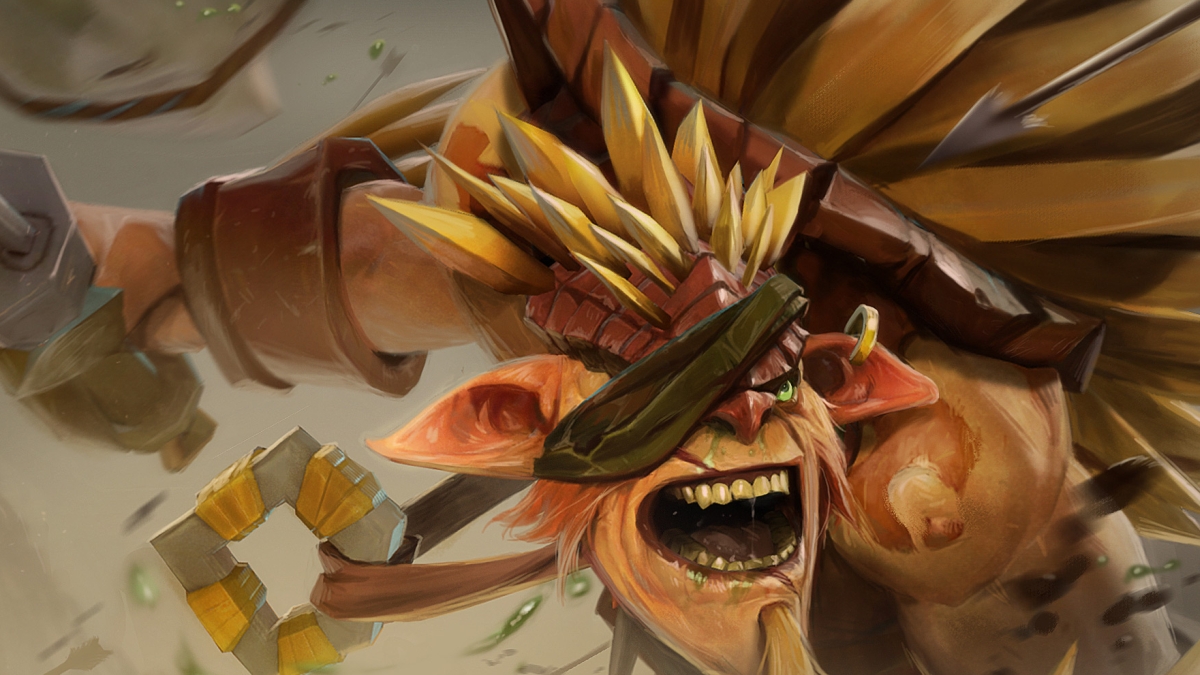I no longer regret my decision: making better choices in Dota 2

Every week, Chris documents his complex ongoing relationship with Dota 2, Smite, and wizards in general.
A few days ago, in an article about ESL One Frankfurt, I made a point of praising Team Secret's decision making. This comes up a lot in my thinking about Dota. Something that applies to this game and many other things besides is the way that professionals 'make it look easy'. This is particularly apparent in esports, where the game the pros are playing is exactly the same as the one you play at home. Watching them pull off perfect rotation after perfect rotation, perfect counter-initiation after perfect counter-initiation, it's easy to sit back and think: I could do that.
I can't, though, because while I can imitate the visible aspect of their performance I can't replicate the thought processes that make it happen. The best players make (and don't make) decisions very quickly, drawing on a massive amount of prior experience to do so. I've written before about how, ultimately, there's no substitute for raw time investment when it comes to getting good. There are, however, a few approaches that I've found helpful while trying to become a better player—particularly with regards to decision making.
Always be running through scenarios in your head
This started, for me, with trying to get an intuitive grasp of blink dagger's maximum range. Rather than wait for a teamfight to discover that I didn't quite have it down, I'd think about it as I was running around and practice when things were quiet. If I was playing support and had blink, for example, I'd practice while warding. This isn't advisable in serious competitive games but in pubs I think it's a good way of getting your eye in.
The same applies to skill rotations and other items. If you're always thinking about what your next move might look like then it's far less likely that you'll panic, rush, or screw it up. That might mean something like 'I'm going to blink, hex, stun somebody else, force staff myself out and look for a finger of death opportunity'. Once you've figured that out, check which inventory slots your blink dagger and force staff are in. This is about as basic as advice gets, but the speed at which you make a decision doesn't matter at all if you haven't done the basic groundwork that makes sure you don't fat-finger your dust and force staff yourself in the wrong direction.
Say what you're about to do, but don't let that stop you
I've spent a lot of time over the last year writing about communication—particularly about the importance of being clear and vocal with your ideas. The flipside to this is that in an idea world you shouldn't need to wait for a reply once you've explained what you're going to do.
Keep up to date with the most important stories and the best deals, as picked by the PC Gamer team.
There's another word for this, and it's 'trust'. If you trust that the people you're playing with have your back, then saying 'I'm going to blink-echo slam with the next wave' and then doing it is fine. If it's what you need to do to break their base then it's what you need to do, and it's on them to follow you up. I've seen a lot of teams fall apart due to hesitancy resulting from a committee-ish need to make sure that everybody agrees with the plan before anybody pushes the button.
If you don't trust the people that you're playing with, arguably you should go for it anyway. They might surprise you: you're just another pub random to them too, after all.
Act
I mentioned hesitancy above. It is, I find, something that intermediate teams really struggle with. This indicates lag in the decision making process—it's everything to do with thought and communication and very little to do with reactions. Although there are certainly times when rushing in ruins it for everybody, I increasingly believe that you learn more about the game if you're willing to make a move without hesitation.
Don't get me wrong: this is how many, many matches get thrown away. Ultimately, however, you only learn to make better decisions by making decisions. If you wait for the perfect play, you probably won't make one. If you make no plays, you won't learn—all that time running through scenarios doesn't mean much if you don't take that knowledge into the wild. This taps into a broader truth—if you're going to learn, be willing to lose—but it is specifically relevant here. If you need to blow a long cooldown ult to make sure a kill happens, do it. If you think you can outplay an isolated enemy, try it.
This might sound a little dumb, but acting more confidently when making a play is the wrong idea helped make me more confident when it was the right idea. It also helped me learn the myriad ways in which an idea can be a bad one. There's no substitute for time, after all, and you cannot learn to make better choices by not choosing.
To read more Three Lane Highway, click here.
Joining in 2011, Chris made his start with PC Gamer turning beautiful trees into magazines, first as a writer and later as deputy editor. Once PCG's reluctant MMO champion , his discovery of Dota 2 in 2012 led him to much darker, stranger places. In 2015, Chris became the editor of PC Gamer Pro, overseeing our online coverage of competitive gaming and esports. He left in 2017, and can be now found making games and recording the Crate & Crowbar podcast.


